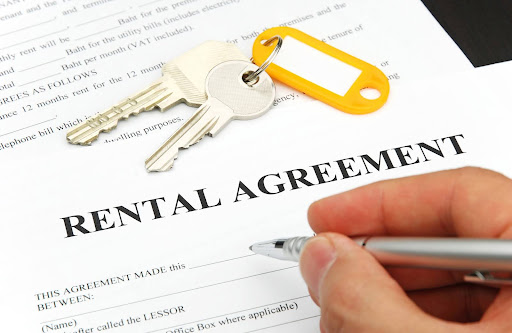How To Deal With Short-Term Rentals In Condo Associations
Short-term rental in condo associations are becoming increasingly prevalent. Given their potential negative effects, many condo boards are moving to restrict them. Not all restrictions, though, may be reasonable or even enforceable. Boards must consider the law before taking action.
An Increase in Short-Term Rentals in Condo Associations
There is a clear demand for short-term rentals in the United States. The short-term rental industry is a multi-billion dollar industry, with revenue increasing every year. While vacation rentals experienced a dip during the COVID-19 pandemic, things are back in full swing today.
Why do people gravitate towards short-term rentals?
With a sizable shift to remote work triggered by the COVID-19 pandemic, more and more people are choosing to hop from one place to another. After all, there is a big difference between working remotely from home and working remotely from paradise. With increased flexibility, Americans are now simultaneously working while on vacation.
Short-term rentals are particularly popular in condo communities. Florida, for instance, is home to countless condominiums. As a common vacation destination, Florida welcomes visitors in droves, who often book short-term stays in condominiums.
However, allowing a short-term vacation rental in a condo association has several side effects. Many condo associations dislike these types of rentals because of their negative impact on the community.
One such impact is a decrease (or perceived decrease) in safety. An increase in short-term rentals means more strangers coming in and out of the building. Long-term residents feel less safe and secure when they constantly see a stream of new faces – people they don’t know and have never been neighbors with.
The condo’s appeal to new buyers also tends to plummet when there are many short-term rentals. New buyers have a more challenging time securing financing when a condo has more than 25% of its units as short-term rentals. Lenders are more hesitant to finance purchases in these communities because there is a greater risk of financial instability.
Do Condos Allow Short-Term Rentals?

Although short-term rentals have clear negative effects on condos, they increase tourism and allow owners to earn extra income, but there are benefits and pitfalls. However, whether or not a condo association can allow short-term rentals depends on state laws and the governing documents.
Some states have stringent laws regulating what condo associations can and can’t do, including prohibiting short-term rentals. As such, condo boards should first look to their state and local laws to determine what action they can take.
In Florida, condo boards can generally restrict short-term rentals in condo associations. However, according to Section 718.110(13), amendments restricting condo short-term rentals work differently.
Here is the provision:
“An amendment prohibiting unit owners from renting their units or altering the rental term or specifying or limiting the number of times unit owners are entitled to rent their units during a specified period applies only to unit owners who consent to the amendment and unit owners who acquire title to their units after the effective date of that amendment.”
Apart from state laws, condo boards should also refer to their governing documents. The condo’s bylaws and CC&Rs, in particular, may contain provisions prohibiting or restricting short-term rentals in the community.
How to Enforce Condo Short-Term Rental Restrictions
Dealing with short-term rental in condo associations can come as a challenge. However, armed with the right knowledge, any condo board can handle their vacation rental problem.
Here are the steps to take to enforce condo association rental restrictions.
1. Enact a Policy
If a condo association allows short-term rentals to some degree, it will need a comprehensive policy outlining all the requirements and restrictions. However, if it intends to ban all short-term rentals, it will likely only need a less detailed policy.
When crafting a short-term rental policy, it is important to include the following information:
- If owners are required to provide rental information to the board or community manager, including the duration of the rental, start and end dates, and tenant information
- Whether the association will charge a short-term rental fee or other fees
- Any rules that apply to short-term renters
- Fine policies if a renter or unit owner violates the rules
- Occupancy limits
Additionally, the condo board should make it clear that the behavior of the renter falls under the responsibility of the unit owner or landlord. As such, if a renter violates the rules, the owner will have to answer for it.
2. Have a Rental Agreement

One of the most important short-term condo rental conditions is requiring landlords to have a rental agreement. This agreement or contract should outline all the pertinent information about the rental, including a statement that the renter must follow the association’s rules. Renters must sign this contract to signify their agreement.
3. Manage Rentals
Managing short-term rentals can be difficult, especially for larger condo communities. To make things easier, condo boards can use online management tools to create distinct profiles, track rentals, and tag violations. Such tools also let condo boards send the rules directly to the tenants.
Alternatively, a condo board can hire a condo management company to handle this task. Community managers usually have access to the right platforms and resources to make rental management smoother.
4. Enforce Using Penalties
It is not enough to simply have rules and restrictions. If a condo board wants to ensure that owners follow these rules, there should be penalties for violations.
The short-term rental policy must specify what penalties owners potentially face. This includes fines or other consequences, such as temporarily suspending renting privileges. Condo boards should amend their governing documents to include this policy.
Furthermore, condo boards should enforce the policy uniformly and consistently. There is no room for bias or selective enforcement. Board members should also follow proper enforcement procedures to avoid claims of invalidity.
Navigating Short-Term Rental in Condo Associations
Short-term rentals clearly negatively affect condo communities, which is why many boards restrict them. Restrictions, though, should still comply with state laws and the governing documents and be reasonable. A condo management company can assist boards in navigating the ins and outs of short-term rental rules.
Freedom Community Management provides condo management services in Florida. Call us at 904-490-8191 or contact us online to learn more!







